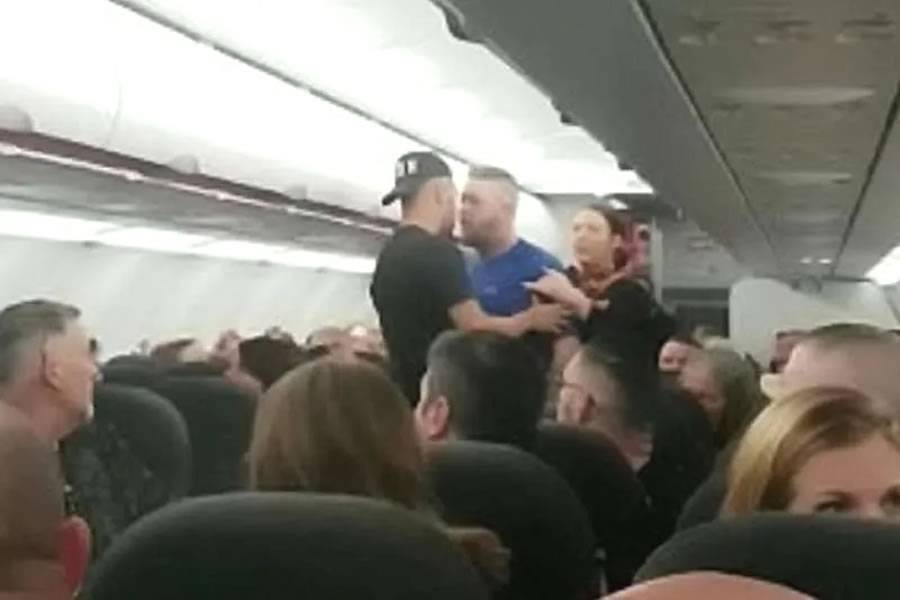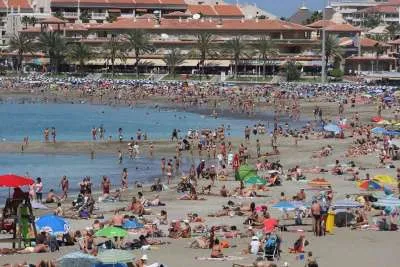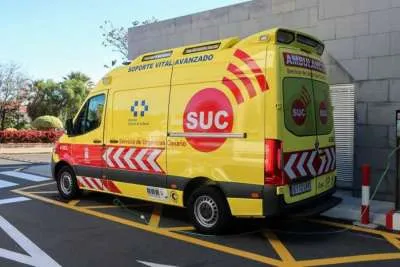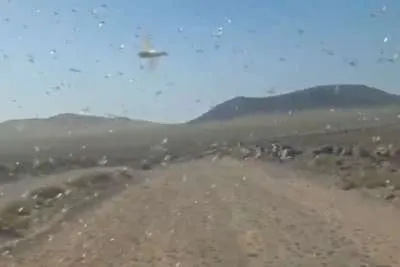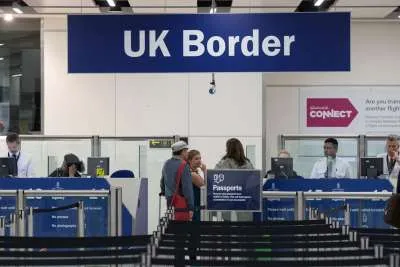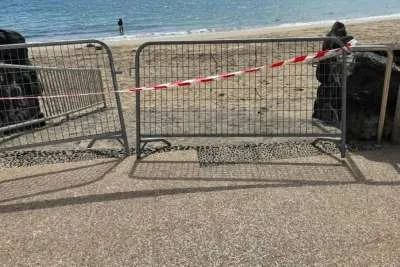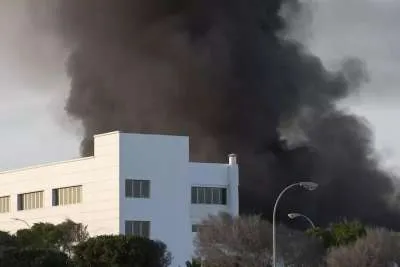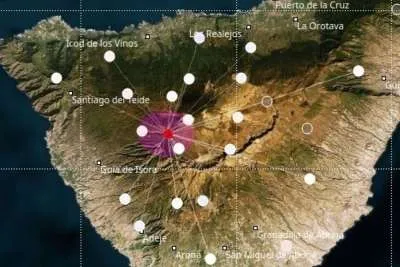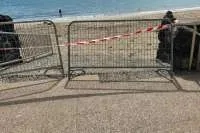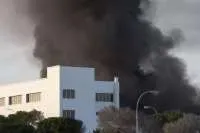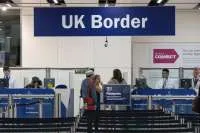There are more disruptive passenger incidents on flights to Tenerife than anywhere in Spain
- 09-04-2024
- National
- Canarian Weekly
- Photo Credit: Stock image
According to the latest data from the State Aviation Safety Agency (AESA), Tenerife South Airport had more complaints against passengers for incidents resulting from inappropriate or conflictive behaviour during commercial flights during 2023, than any other airport in Spain.
In total, 189 incidents were reported at Tenerife South airport, which includes complaints filed by flight crews upon arrival at their destination after having had disruptive incidents on board.
In close second place was Alicante, with 184 complaints, followed by Palma de Mallorca, with 177 incidents. The State Aviation Safety Agency explains that this growth in complaints between January and December 2023 is due, in part, to several incidents in which groups of passengers travelling on the same flight were involved, which translates into an increase of each indicator.
Regarding the data for the rest of the Canary Islands, Gran Canaria airport was ranked seventh nationally with 64 cases, and Lanzarote was ninth with 41 complaints filed.
Lanzarote was immediately followed by Fuerteventura, in tenth place in the national statistics, with 37 cases last year, and the only other airport in the archipelago that appears on the AESA list is Tenerife North Airport in 13th with 12 complaints.
The spokesperson in the Canary Islands for the Union of Air Traffic Controllers (USCA), José Luis Feliú, believes that there have always been fights, arguments, and other types of incidents during flights, but what is happening now is that "they are more visible due to social media showing videos and images of the altercations”.
Feliú points out that these violent confrontations when the plane is in the air are "quite uncomfortable and dangerous" for the pilots, the rest of the crew of an aircraft, and of course the other passengers.
Francisco Cruz, who is a pilot and part of the technical department of Sepla (Spanish Union of Airline Pilots), says that fights and mid-flight altercations are a worrying problem for the entire airline industry, and believes that the problem is getting worse.
According to the statistics that Cruz manages, in 2022 there was an incident with one or several passengers for every 835 flights, but in 2023 that parameter was one confrontation for every 568 flights, showing a considerable increase.
The most common are related to failure to comply with crew instructions, verbal harassment of airline staff, and abusive alcohol consumption. They are also linked to smoking cigarettes or vaping electronic cigarettes, not fastening seat belts, carrying excess carry-on luggage and not storing it correctly, or drinking alcohol not served by the crew. Physical attacks are still "low", in Cruz's words, however, in 2023 they increased by 67% compared to 2022.

The International Federation of Air Line Pilots Associations and IATA propose a strategy to address this problem. The first point is prevention and deterrence. That is, take measures to prevent boarding of passengers who are already showing signs of inappropriate behaviour or inebriation on the ground, through information campaigns and with the actions of check-in agents, with a proposed increase of fines up to 40,000 or 45,000 euros.
The second proposal is to prevent passengers from bringing alcohol or drugs onto the plane, or from boarding the aircraft with signs of being drunk or drugged. The Sepla spokesperson points out that "the aircraft commander has the power to prevent it if he detects that that person may disturb the tranquillity of the flight."
The third point focuses on staff training. There are already airlines that follow guides to deal with these situations, initially, on the basis of proportionality and negotiation. The fourth element involves "using devices to restrict the movements" of troublesome passengers, for example, using "straps" to immobilise them.
The fifth point involves generalising the application of the Montreal Protocol (signed on January 1, 2020), which represents an agreement so that the violent individual is tried in the country where the plane lands. And, in parallel, Sepla believes that penalties should be toughened. For example, in France there are cases that can involve paying fines of up to 75,000 euros and five years in prison.
Also, a unilateral ban on flying is being considered meaning that people charged with causing disruptions on planes, would be banned from flying with all airlines for a period of time depending on the seriousness of the incident.
Other articles that may interest you...
Trending
Most Read Articles
Featured Videos
TributoFest: Michael Buble promo 14.02.2026
- 30-01-2026
TEAs 2025 Highlights
- 17-11-2025


